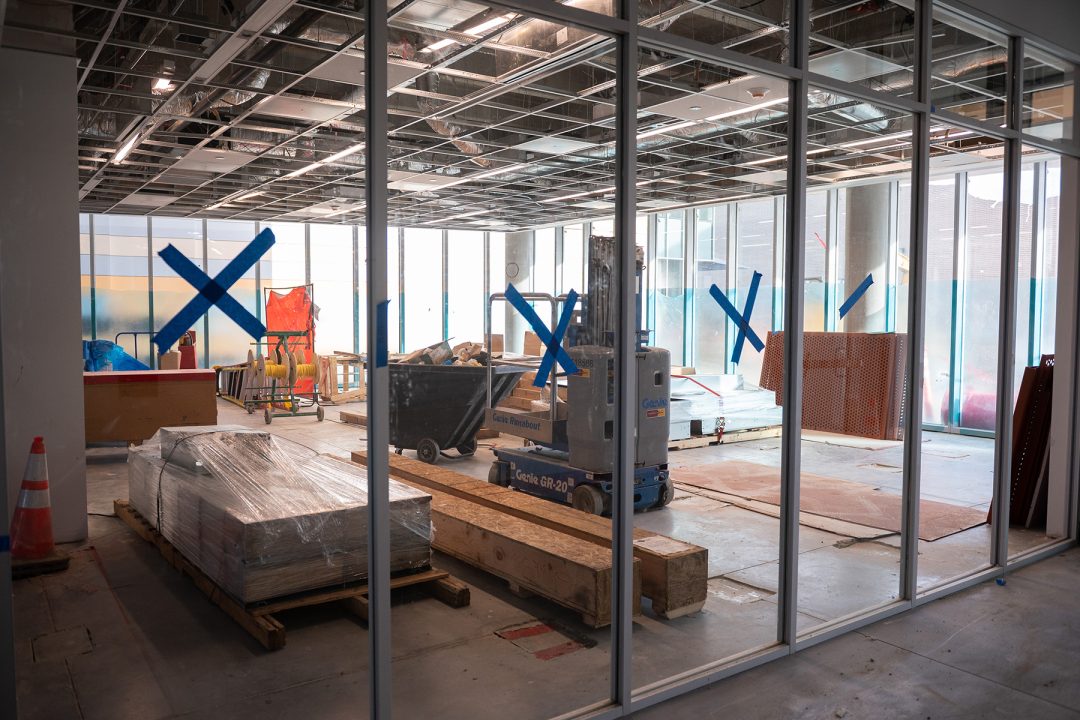Thomas Sosa has a word of advice — two words, actually — for students wanting traditional, in-person classes on TCC Northwest this coming fall semester: “Register early.”
Such classes will be in short supply because of Northwest’s massive redevelopment program. Four of the original campus buildings — WTLO, WSTU, WCTS and WFAB — will be demolished to make way for new construction. One new building, NW05, will be open, but its cross-campus sibling, NW01, won’t open until October.
Sosa and other campus administrators — have been aware of the coming shortfall since last summer and immediately began crafting an Academic Continuity Plan that will enable as many in-person classes as possible while providing alternatives, including a new teaching modality, that will help meet the demand.
To quantify the problem, Director of Academic Affairs Ryan Ferguson collected data on how many classrooms containing how many seats had been available last fall and then compared those numbers with the availability this coming fall. In fall 2022 the campus had 43 classrooms with 1,145 seats; the numbers for 2023 were 23 classrooms with 633 seats. Ferguson’s reaction: “Whoa! How are we going to navigate this?”
“It was a huge jigsaw puzzle,” Sosa said, “a two-sided, three-dimensional jigsaw puzzle, and I have to give huge credit to our deans. You would think that nowadays you could just plug that information into a program and have it spit out an optimized schedule, but we found that it’s not as easy as it sounds.”
For one of those deans, Lisa Benedetti (Humanities), the puzzle was more like a game of pickup sticks. “Everything you have, every move you make impacts something,” she said. “It was definitely a systems approach with everyone’s minds together needed to build a schedule in the very small space we’re going to have.”
Students were the top priority of the group, which also included department chairs — how to build a schedule with as many physical “touchpoints” as possible and how to communicate the result to students as they register. For the communication piece the group turned, not surprisingly, to students. They defined the three teaching modalities that will be used — in-person, blended (part in-person and part remote), and “synchronous remote,” new to Northwest, in which classes are taught remotely in real time.
The definitions were then given to students in technical writing courses to be translated into “student terminology,” Benedetti said. “We wanted to get outside of what we think as academics and say, ‘Okay, how should our students see this?'”
Sosa and Benedetti are confident that students will adapt to the new arrangements. After all, Sosa said, they’ve already had to deal with closed parking lots, circuitous and frequently changing ways of getting from one place to another, and the noise and dust that go with major construction. “I think that’s a testament to our faculty and staff and the support and care they have for our students. Despite everything, I think we’re going to see students continue to want to enroll at Northwest.”

